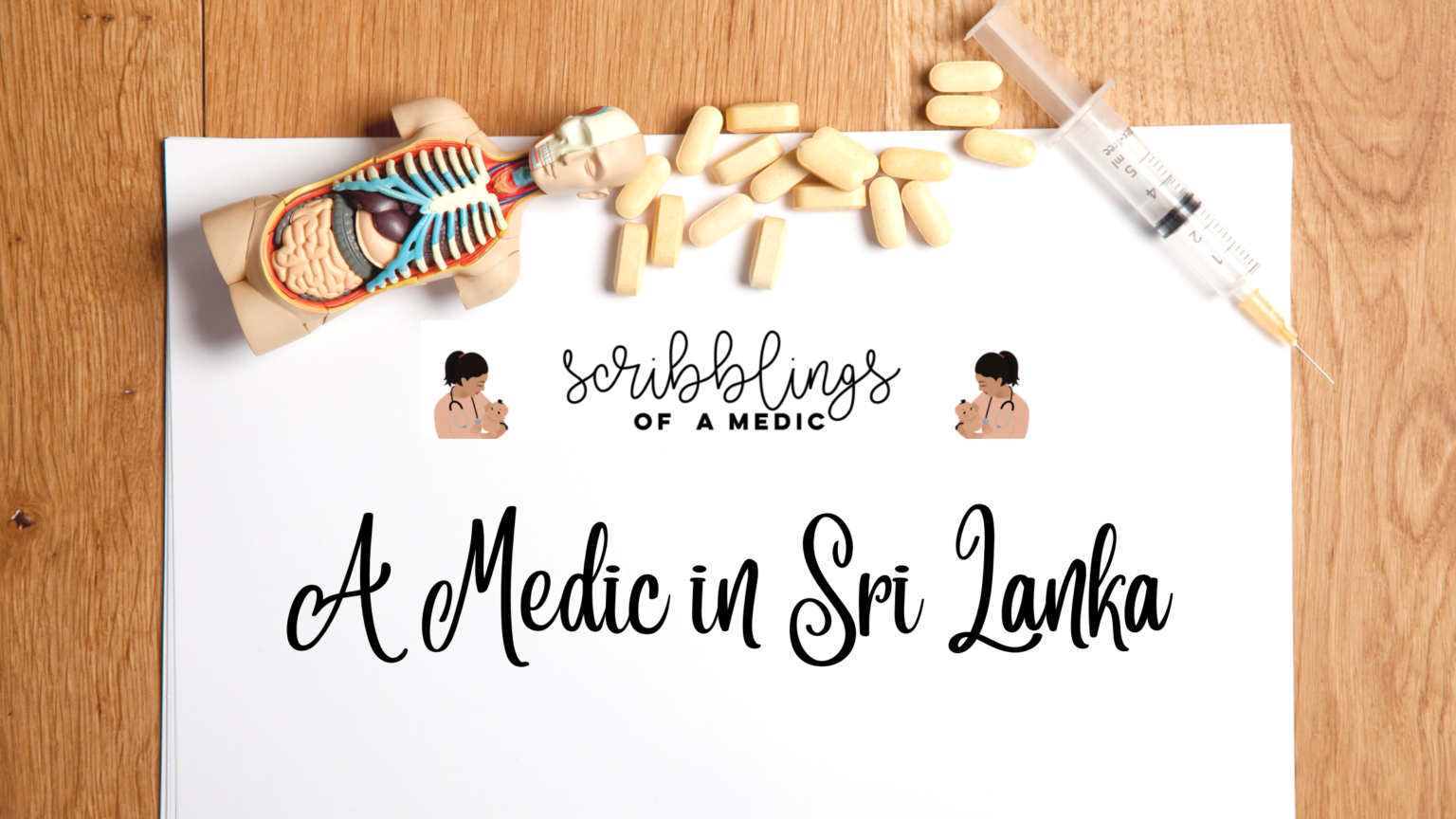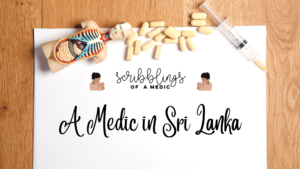Online degrees and diplomas are often looked at quite skeptically because of the many scams now circulating around the internet. Many also questions the validity and quality of online learning programmes – how much weight would the degree carry? would I actually learn anything online? how much does it cost?
I definitely was very apprehensive prior to starting a course online – a post-graduate one nonetheless! Distance Learning however, offers eager beavers like myself, the chance to gain knowledge and skills from reputed universities for a fraction of the cost without making a move half way across the world (which I’ve done for my degrees – TWICE!).
My story
After my internship completed in November 2017 (December really as there was a delay in sending a new batch of interns), I was a little impatient to get started on my future specialization even though I hadn’t made up my mind about any one particular subject. At the time, I had narrowed down a few specialities from the wide range available on the PGIM website to a few based on how I would feel in the future as a consultant of one of these specialities. I hadn’t made up my mind yet, but one thing I knew for sure is that I wanted to teach. As I’ve said numerous times before, medical education holds a special place in my heart. I love sharing any knowledge or skills I had with juniors in medical school, nurses and interns in hospitals.
My mentor (a Professor in Surgery), constantly quizzed me about my next move. I told him honestly that I still wasn’t sure about where my heart lied in medicine, but one thing I knew for sure is that I wanted to teach. It is not easy for a foreign student to get into a medical faculty here and so he knew that I would have to build up my CV as much as I could. He encouraged me to keep writing up case reports and get involved in any other research in an effort to build up my CV, but also to consider doing an online distance learning programme in medical education from an established university. The Sri Lankan postgraduate system requires one year post-internship to be completed for most postgraduate subjects and so I had to wait till I had completed one year of RHO training before being eligible to sit for any of the examinations (More on the very complicated world of Sri Lankan postgraduate examinations in the future).
When it comes to medical education, there is a straightforward step-ladder that must be completed in order to specialize in it. I never wanted to specialize in it, but more so have some adequate training and atleast a primary certification in the subject. The first step would be to complete a postgraduate certificate in medical education (PGCert in Med Ed).
PGCert Med Ed → PG Dip Med Ed → MD Med Ed
Only after completion of the PGCert in Med Ed can you progress to the postgraduate diploma of medical education, and then ultimately to the MD of medical education programme. The PGCert (MedEd) conducted in Sri Lanka still requires one year post internship to be completed at the time of application for the selection examination.
After thoroughly reading through the Sri Lankan PGCert & PGDip prospectuses, I was made aware that if I did chose to pursue a diploma in medical education after the PGCert, then there were a few foreign PGCert qualifications that are recognized by the Board of Medical Education studies in Sri Lanka.

Then after perusing the prospectuses of the recognized british postgraduate programmes, I found that the University of Dundee which is recognized by the board in Sri Lanka, offers an online distance learning programme. It also offered a well-rounded curriculum with the option to chose 2 of the 3 modules from a given list for the course.
I had never studied purely online before. I was the type of student that craved lectures and loved walking between lecture theatres and libraries. The sight of other students motivated me to study, even though I’m not one for group studying. It would be a challenge, but one I was not afraid to try.
Format of the distance learning programme
Like any course, the year’s content is divided into 3 semesters. Each semester runs one module (you have to do a total of 3 modules) and is further divided into weeks so that the student can monitor their progress and knows how much work should be completed. Each module has a formative assessment (midway) and then a summative assessment at the end of the semester. Throughout the semester there are a number of online activities that must be done – these can include watching presentations, discussing topics with your teaching group or reading compulsory journal articles and writing your opinion on the topic. There are discussion boards to post on if you do have any queries, where either a peer or a supervisor will help you out (sometimes they take forever to reply though!).
Studying a subject that required ALOT of independant reading whilst also balancing a full time job and personal committments (my wedding!) was quite stressful and I had to be hyper-organized. I would know my roster a month in advance at a time and would strategically alocate days to dedicate purely to the degree. When I had the time I would try to do about two or three weeks worth of work into 1 week so that I could get through the busy weeks easily and so that I will have more time to dedicate to my assignments.
Online learning may sound easy, but it certainly is not! There are no peers around for you to frequently discuss any queries you may have. There is an introductory forum where you are encouraged to introduce yourself and interact with your peers, but this definitely isn’t the same as a face to face coversation. I was lucky to do the course with an amazing group of people who took the initiative of making a whatsapp group so that we could all communicate easier and discuss any worries we may have had with the work/assignments. I was obviously the only Sri Lankan, most of my peers were from England, South Africa and Canada – all medical professionals – some hoping to specialize in the field, all much senior to me. I would have been utterly clueless if not for this group of people, so I’m very thankful that I had them and could have my concerns sorted at the drop of a whatsapp.

Pros of distance learning experience
- A post graduate UK qualification for a fraction of the cost without having to actually leave your home country!
- It is absolutely great for independent learners who prefer to study at their own pace, but are organized enough to handle the workload.
- It is great for full time workers – you go through the work when you have the time to spare, wherever the location may be.
- You get access to so many research databases through your student log in details.
- The reading material is presented in an organized manner – no need to go hunting for it.
- I had a fantastic group that was ever ready to help me out and share concepts. I can’t vouch for every single online program, but I was certainly lucky with mine.
- If you have a disability, then this is a great way to get your qualifications without having too much trouble on getting to a campus.
Cons of distance learning experience
- Costly (it is cheaper than physically doing a degree in the UK, but still way more expensive than the PGIM Sri Lanka exams – even if you are a private candidate)
- Independent learners only! There should be a warning sign saying this – alot of self-motivation is required to read the 3-5 research articles (each with 16-20 pages) that is part of the essential reading list.
- Atleast 1-2 days a week free to dedicate for online learning – The weeks are also heavy with concepts and theories that take time to register so you really need a day or two a week set aside.
- Lack of interaction with peers – I really did miss interacting with my peers on a face to face level. The whatsapp group even though exceptionally helpful, can only get you so far. This was probably the saddest part of online learning.
- Communication with supervisors is sometimes a bit estranged. They take forever to reply, and you may need to bug them by email in addition to bugging them on the online platform forums.
- You will obviously need to know how to operate the computer and internet so if you don’t then you might want to reconsider (it isn’t rocket science however, very simple!)
So in conclusion, I’m thrilled to have completed my post graduate certification in medical education – it helps me understand my juniors and colleagues better – especially when it comes to the different learning styles. As you probably know I love imparting any knowledge I may have at all on the blog, and I’m a big nerd, I absolutely love learning. Maybe one day I’d like to pursue a career in medical education, after getting specialised in one area of medicine, but for right now I think the plan is to hang on to the PG Cert. I hope my experience with distance learning will encourage you to give it a go if you ever have the opportunity. As always, if you have any questions, do email me or DM me on instagram.





